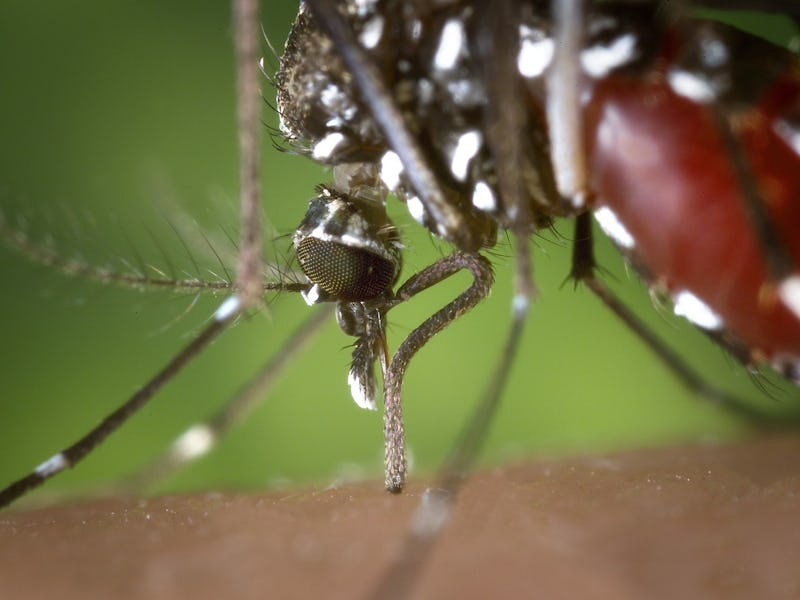This Trendy Mosquito Repellant Is B.S.
Unless you like itchy skin and wasted money.

The idea is seductive: Put on a bracelet or sticker infused with insect repellants, and mosquitoes will fly in the other direction. And when peak mosquito season hits, you can bet that you’ll see a slew of products promising this.
The only problem is, it’s bullshit.
“It’s a scam,” Jonathan Day, a mosquito researcher at the University of Florida, tells Inverse. “A lot of the time, they’re placed around the cash register, and they’re impulse buys. Because they don’t actually say they’re a repellant on the labeling, they don’t have to be certified through the EPA. So it’s one of those things where people see it, and they say, ‘Oh that’s a great idea,’ and buy it, and it doesn’t work, and they don’t buy it again.”
These products often contain chemicals that have been shown to deter mosquitos, like DEET, oil of lemon eucalyptus, or citronella. But putting a repellant in a bracelet will only prevent bites in the immediate vicinity of the bracelet — if that.
Mosquito bracelets are great, if you only care about protecting a small patch of skin immediately next to it.
But here’s a crucial detail: The protection time for these wearable products is exactly zero minutes, according to Day’s research.
“The way a repellant works is that you have to have skin coverage,” he says. “You can’t have something that’s impregnated with DEET that you wear on your ankle or your wrist that provides an aura of protection all around you. It doesn’t work that way. With DEET, ‘repellant’ is not actually accurate, because you can have DEET on and mosquitos still come to you. Mosquitos are still attracted to you, but usually what happens is they make one or two contacts with a skin surface that has DEET on it, and that’s it; they’re done; they leave.”
Remember Kite, the company that made a stir a few years back with the promise that it had a patch that would make you invisible to mosquitos? After crowdfunding half a million dollars, the company is now selling — you guessed it — a topical repellent that you apply to your skin. It claims the patch is still in development as a “complement” to their spray-on product.
Same story for devices that claim to repel insects with noise, or mosquito “traps” that hope to attract bugs away from you — there’s no evidence they will protect you from bites.
If there’s an exception, it’s in insecticide chemicals designed to fill a space and keep it bug-free. OFF! sells a clip-on device that emits metofluthrin with the help of a fan. This might give you some protection, assuming you’re not moving around, and there’s no wind. So, assuming you prefer breathing chemicals rather than putting them on your skin, this could work for you in some very narrow circumstances.
But you’re much better off sucking it up and applying an approved insect repellant right on your exposed skin.